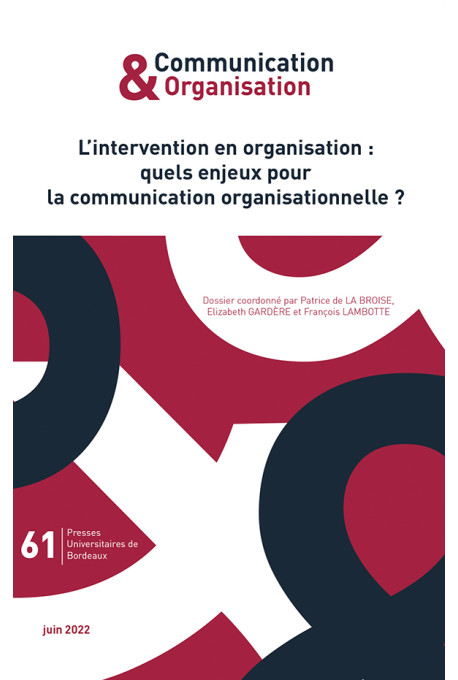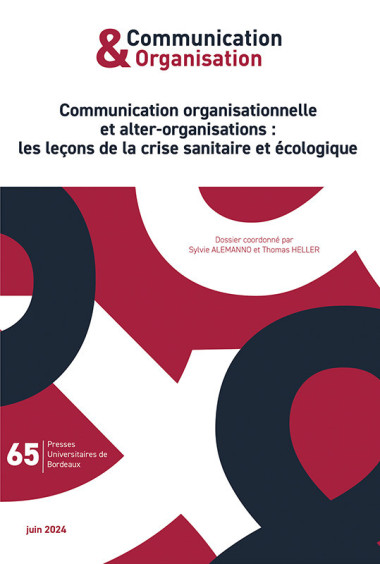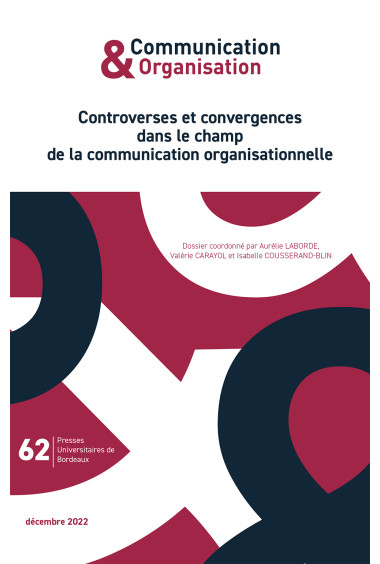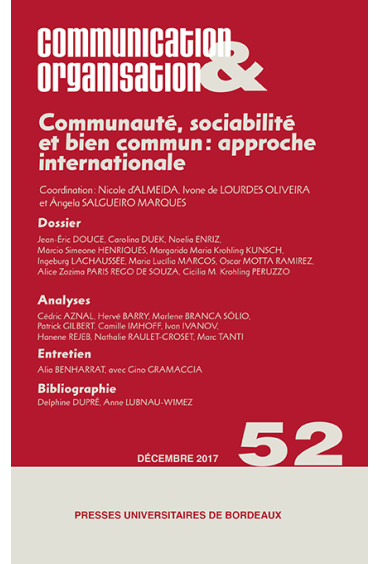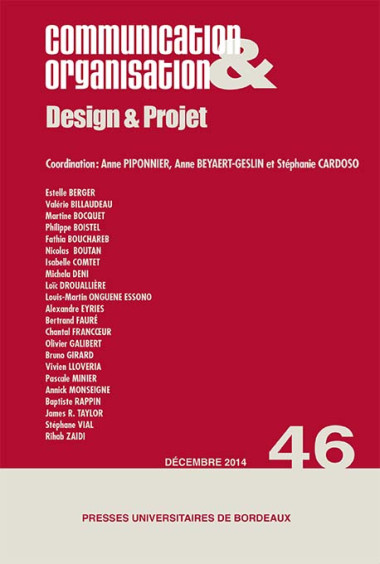Revues - Communication & Organisation
L’intervention en organisation : quels enjeux pour la communication organisationnelle ? - Communication & Organisation 61
ISBN : 979-10-300-0846-3
Nombre de pages : 244
Format : 16 x 24
Date de sortie : 2022/09
Si intervenir, c’est prendre part à une action, comment y prendre part effectivement en communication organisationnelle ? À quel titre et pour quelle(s) visée(s) ? Entre recherche-action et recherche-intervention, la frontière apparaît relativement ténue, la recherche-action ayant ceci de particulier qu’elle ne vise pas seulement à « agir », mais également à « transformer ».
Si intervenir, c’est prendre part à une action, comment y prendre part effectivement en communication organisationnelle ? À quel titre et pour quelle(s) visée(s) ? Entre recherche-action et recherche-intervention, la frontière apparaît relativement ténue, la recherche-action ayant ceci de particulier qu’elle ne vise pas seulement à « agir », mais également à « transformer ». Notre objectif, dans ce numéro, est d’ouvrir le débat sur les modes d’intervention et ce qu’ils produisent comme effets sur la production du savoir scientifique, sur la posture du chercheur, sur la manière dont les sciences de l’information et de la communication peuvent prétendre « intervenir » dans les organisations sans se départir de la critique comme condition d’accomplissement de la recherche. Malgré la diversité des recherches conduites en communication organisationnelle, la contribution du chercheur à l’organisation est paradoxalement assez peu questionnée sous l’angle de l’intervention. Or c’est précisément la nature de cette contribution qui retient ici notre attention. Le statut et le rôle de l’intervenant sont à préciser, sachant que les figures de l’expert ou du consultant ne se confondent pas avec celle du chercheur. Entre pôle scientifique et pôle praxéologique, comment la production de connaissances peut-elle composer avec une « demande » ou une « commande » dont la résolution de problème constitue la visée téléologique première ? Et quelle place accorder à la recherche dans un foisonnement de “problématiques” souvent réduites aux temporalités et attendus de l’étude ?
